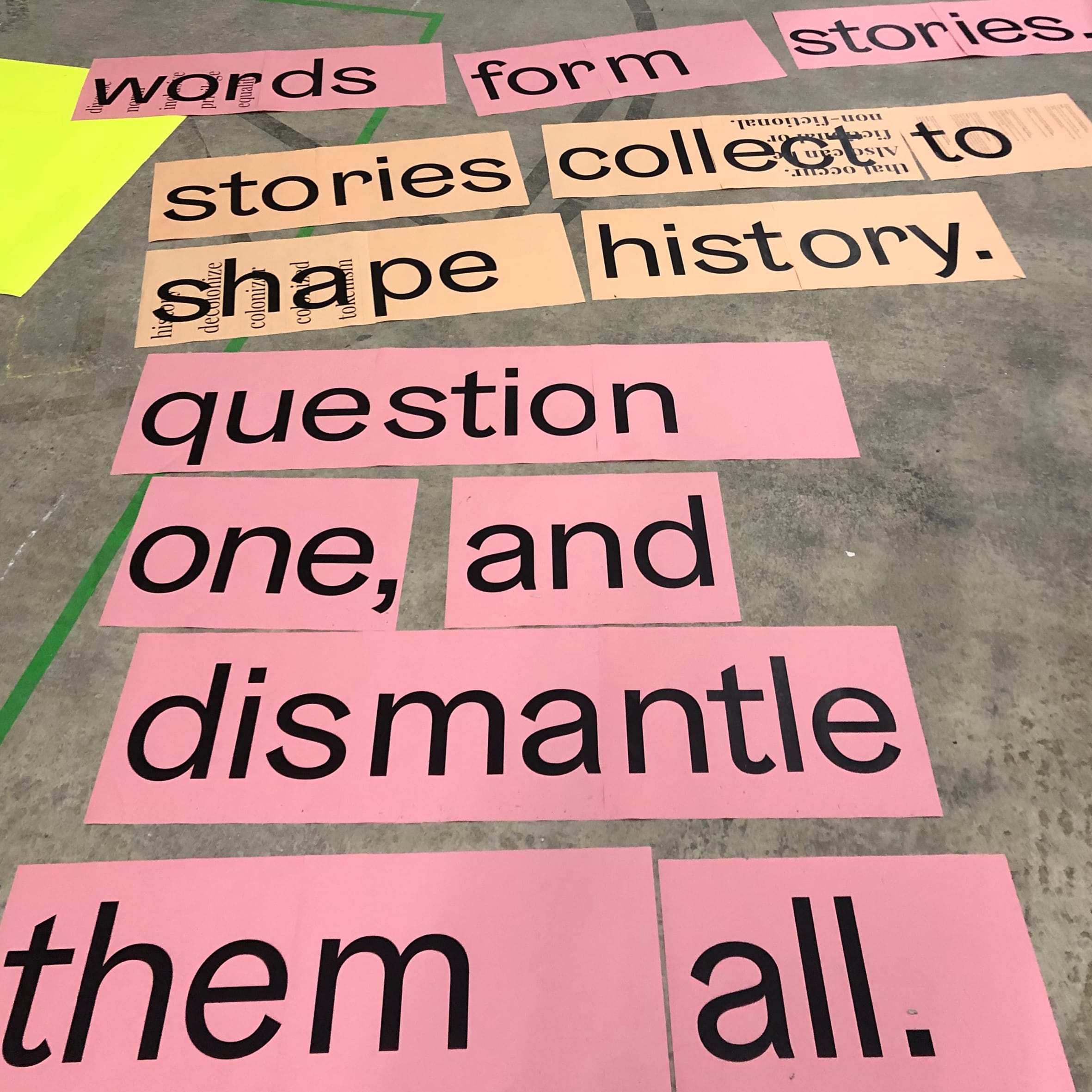Ravista Mehra
Recent graduate, Royal College of Art

‘Misinformation’ in it’s essence is incomplete knowledge that goes to form wrongly accepted and distributed ‘facts’, which becomes the basis of the ‘history’ of humankind.
The Great India apologises for having colonised Britain
Abstract
What I hope to share with you is my design process, which inspires not only my work, but also my everyday living. I find it really hard to resonate with the term ‘graphic designer’ because the preemptive understanding of the profession supersedes what I want to do with it. I consider myself a storyteller. I am someone who is privileged enough to work with multilingual narrative from across the world. The misconceptions that narratives have to exist in a particular manner, form or hierarchy is what I want to challenge. To me a narrative is the flow of information, and that information can be ‘factual’, a term I challenge a lot in my work, or a lived-experience story.
Questioning, dismantling and rebuilding- that is my personal action-based definition for decolonization. A field I am new too, one I am exploring and understanding through academic work and real-life experiences. Over my last year at the Royal College of Art I interrogated decolonization from an academic, and first-person narrative standing, from which was birthed Mis(infographics) and Broken Englizh.
Mis(infographic), a term I am trying to coin, tries to investigate the tensions and contradictions in facts, data and information based in ‘history’. Whereas Broken Englizh celebrates first person narrative stories of raw cultural identities, told in non-standard forms of English, as spoken by international residents of the world. To me as a designer, a holistic research approach is key in understanding and creating a bond with a subject matter.
Bio
Ravista Mehra is a bilingual storyteller & visual communicator from New Delhi, India. She has her BFA in Graphic Design, and Comparative Literature and Creative Writing from the Rhode Island School of Design, and her MA in Visual Communication from the Royal College of Art. As a designer her practice lies in the interdisciplinary fields of graphic design, photography, filmmaking, writing & research.
She believes that the world is built around misconceptions, and to her design is one of the lenses that allows for clarifications. She tells complex multilingual stories of individuals in the hope that those smaller stories will tell larger tales of nations whose voices have not been heard in the past by the West. Design for her is a necessity. It’s a translucent structure in place to help communication between people who may or may not have anything in common with each other. Design is a method of questioning, dismantling, & relearning our non-neutral, & non-universal reality. Currently she is focused on looking at design through the lens of decolonization, which in its essence means, giving voice & visibility to the narrative of minorities from around the world. Form to her comes solely from content and she does not hesitate to challenge the norm of what is expected from a traditional graphic designer.